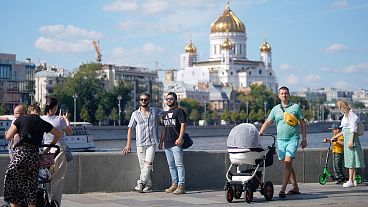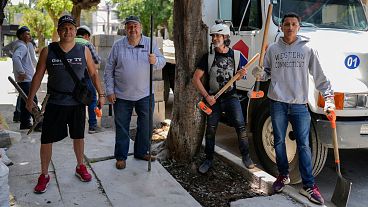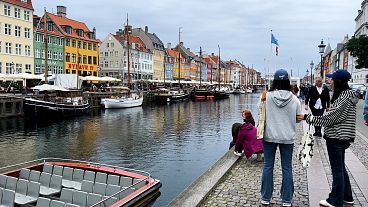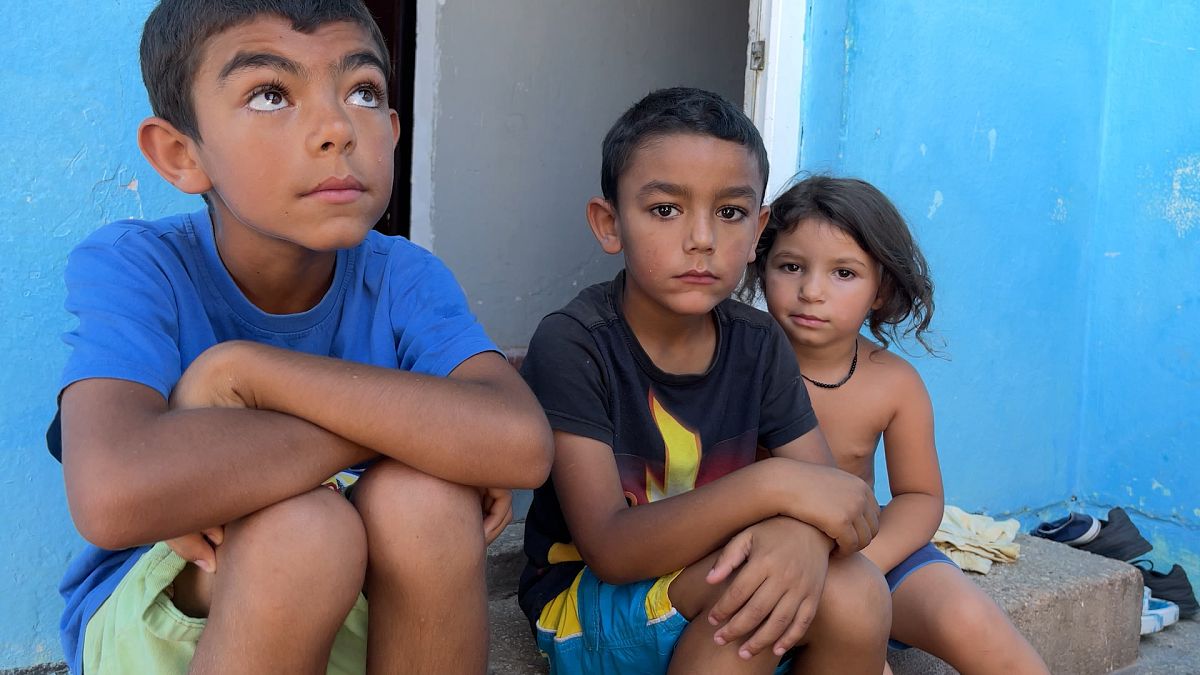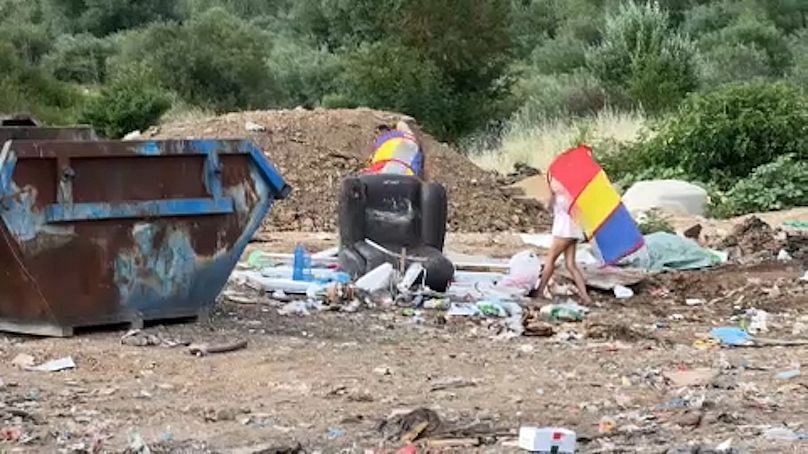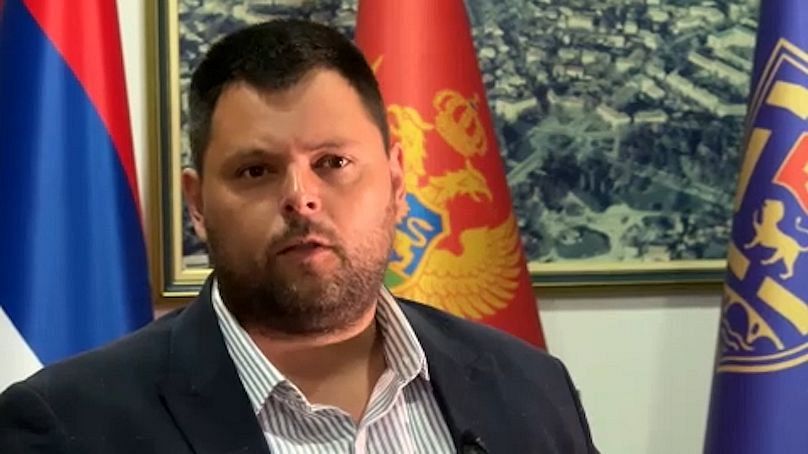Europe's 12 million Roma still experience discrimination and prejudice, but some local officials in the Western Balkans have won EU recognition for their efforts to combat negative attitudes. Reporter Hans von der Brelie travelled through Montenegro, Serbia and Bosnia to find out more.
On my travel I see children playing on waste dumps and others preparing school. I discover rundown shacks and modern social housings. I meet hardworking Roma and those without a job.
I listen to those speaking about discrimination in everyday life and to those living in harmony with other citizens.
It’s a mixed picture, but let’s start with Ramiz Šakoli, a resident of a Roma neighbourhood in the outskirts of Nikšić in Montenegro: “We go to the city centre and people point at us, saying: There are the gypsies. We enter a coffee shop, they say again: There are the gypsies. Relations are not good,” he says.
However, in some cities change is on the way. The European Commission gave seven mayors from the Western Balkans awards for their Roma-friendly initiatives. In Montenegro, the winner is Marko Kovačević. He is the mayor of Nikšić, the second biggest city in the country: some 70.000 people, among them an estimated 1500 Roma.
Changing hearts and minds
Kovačević promoted the construction of 31 social housing units, 17 were given to Roma-families. When he planned to expand the project, there was resistance: “Change is happening too slowly. The reason is the different lifestyle of the Roma community and the rest of our community in Nikšić. Recently, we wanted to build 10 social housing units in one neighbourhood where we had resistance of the rest of the population against the project,” he says.
I visit the “Centrum for Roma Initiatives”. Among other projects, the NGO promotes rights of Roma women. Health, school, work, housing – it’s all linked, says director Fana Delija. An important first step would be to clarify property issues, a problem existing in all regions of former Yugoslavia. “The biggest problem is the (still missing) legalisation of the land where the Roma-Egyptian community lives”, says Delija.
Some Roma are home owners, others are not. A few years ago, at the outskirts of Nikšić, in the Gracanica district, the municipality built social housing where some 300 people are living now.
Huge families are squeezed together, some of them in miserable living conditions, says Bukurija Sejdi, an elderly resident in this Roma neighbourhood: “14 people are living (in this house), with grandchildren, also my son with an ill baby. And no one has work, just one person receives social benefits.“ A point underline by Roma activist Fana Delija: “It is really important to focus on employment in the community, in the upcoming four years,” she says.
I accompagny Zoja Tarlamišaj, a Roma mediator at the local secondary school, visiting Amela and her six kids at home. Amela is married to a Roma man. The women know: to find qualified work, a solid education is needed first, they say. That’s why Tarlamišaj follows closely the school grades of the few Roma kids that have made it up to secondary school.
Tarlamišaj is a Rom herself. She succesfully finished university studies, a rarity for Roma in Montenegro. Tarlamišaj invites political decision-makers to change leglisation: “If secondary school education would become mandatory, pupils from the Roma-Egyptian community wouldn’t quit school so early (after elementary school) and by acquiring better qualifications, their life would improve.“
Roma action plan
My travel continues to Bosnia-Herzegovina, to Bijeljina. Some 100.000 people live in the wider city area – among them an estimated 2000 Roma. The city builds social housing projects, a shelter for exploited children - and supports a Roma festival. Mayor Ljubiša Petrović presented his second Roma action plan now, covering the period 2024 to 2027: “One of the key preconditions for greater inclusion of the Roma minority is education, education, education,” he says.
That’s why already today Roma kids get care all year round. The NGO Otaharin offers homework tutoring and psychological support. Every day there is something to eat, and there are offers to join creative artwork activities. Many families speak the Romani language, that means that their children grow up without speaking Serbian at home. When entering primary school, they meet massive obstacles, Sanita Smajić says, a Roma coordinator at the Otaharin daycare centre. She claims intensive language support: “My proposal is that elementary schools have assistants for Romani language.”
It's scorching hot outside when I meet Vesida and her colleague, harvesting strawberries and packing tomatoes. Vesida works permanently on a nearby vegetable farm, Agroplan. But many other Roma prefer working as day labourers, some of them having difficulties with longterm contracts, Vesida says. The Austrian Development Agency, Care International, the Roma-NGO Otaharin and the municipality of Bijeljina are backing the Agroplan vegetable-project, created to support mainly women. “I am very satisfied with my job”, Vesida says. “I know how difficult it is without job. There are human needs and bills to be paid.
Building for a better future
My last stop is the spa city of Vrnjačka Banja in Serbia. The city attracts many tourists and has an openminded, tolerant image. Some 400 Roma are living here. Drinking water, electricity, construction material, professional training; in the past eight years, local Roma-projects received alltogether one million euros from international donors. The city added almost 200,00 euros from its own budget. “Concretely, we have built social housing for families who had the worst living conditions and moved them in”, city mayor Boban Đurović says.
Since 2016 the city employs a Roma mediator, Dejan Pavlović. We drive to nearby Gračac village. Some 250 Roma live there, it’s the municipality’s biggest Roma settlement. I meet village representative Živoslav Vujičić. He worked for several decades in Germany. When coming back to Serbia, he built a nice, large house with a neat garden. Today, he’s the local Roma spokesman and underlines the good relations they have with the mayor: “He responds to everyone. Not only on Facebook or Viber or Messenger”, Vujičić says. “People even go to his home and ask for help. And he responds. He is just that type of man.” – But Vujičić also admits: “There are problems everywhere. Our greatest need is the sewage system.”
We go for a walk through the settlement. In front of a run-down house I meet Vladica. The German-speaking Rom suffers from diabetes, his brother has a heart problem. Their social benefits are not enough for living, Vladica says. He invites me in. There is no toilet in the house, they have to use an open shack.
The municipality granted construction material for the renovation. But who pays the workers? Vladica Simić: “The plan was to reconstruct the bathroom and to connect us to the electricity network. We have got construction materials, but we are still waiting for workers to come.”
New home, fresh start
Many houses in the village are nice and neat. But not all of them. Roma mediator Dejan Pavlović shows me a tumbledown ruin. A huge family lived there. Rain came trough the roof. A year ago, social services finally found a solution, Pavlović says: “Six people lived in this house and they were moved to a new building that was constructed through a social housing programme realised by the municipality of Vrnjačka Banja. I am happy that this family got an accomodation.”
Today, 7 years old Melissa and her family have started a new life. They moved from their ruined home to a brand new flat, a social housing estate co-financed with funds from the European Union.
Melissa’s father is a tailor but there is not enough work for this trade, so he makes a living on construction sites. To provide for the family, two grown sons got professional training, with the support of the municipality. One became a tiler, the other a hairdresser. Mum Sonja feels she can breath again: “We have (enough) places to sleep now. We are not crushed in like a sardines anymore.”
Her teenage daughter Kristina already has a baby, Gabriel. Dropping out of school and early pregnancies are problems in Vrnjačka Banja, too. I ask Kristina about her professional plans: “Maybe a hairdresser”, she answers. “I have only one child and I’m 17 years old.” Showing me around she says: “Here we have a kitchen and a bathroom where we can take a bath. Before we had to do it outdoors. It’s super here.”
For real change there needs to be some real political will, money, a lot of patience and the friendly cooperation of everyone involved; NGOs, donors, municipalities and local Roma communities.


